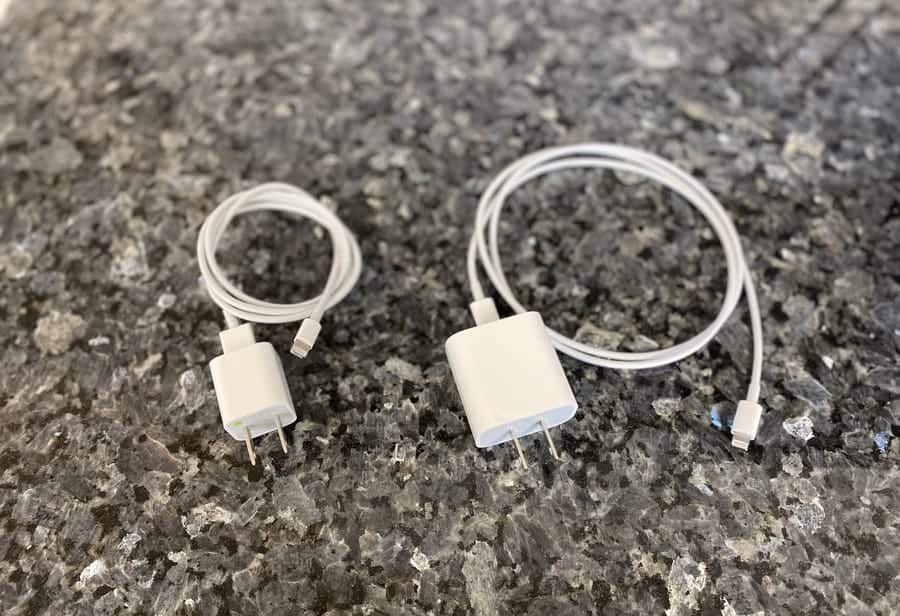
Most new phones come with a quick charger or quick charging capabilities, but many people aren’t familiar with this method of charging. We all want to charge our phones in a way that won’t damage them, but what about quick chargers?
Do quick chargers damage batteries? As long as your battery system is operating as designed, a quick charger will not damage the battery with any significance. There is potential for a slight reduction in the life of the battery due to the heat created when charging with a fast charger, but this very slight reduction in lifespan is considered a negligible trade-off for a fast charge.
In this article, I will go over why fast charging isn’t a problem for your battery, the safety of other chargers you might choose to use, how to keep your phone charged, and how to avoid damaging your phone.
Fast Charging Won’t Damage Your Phone’s Battery
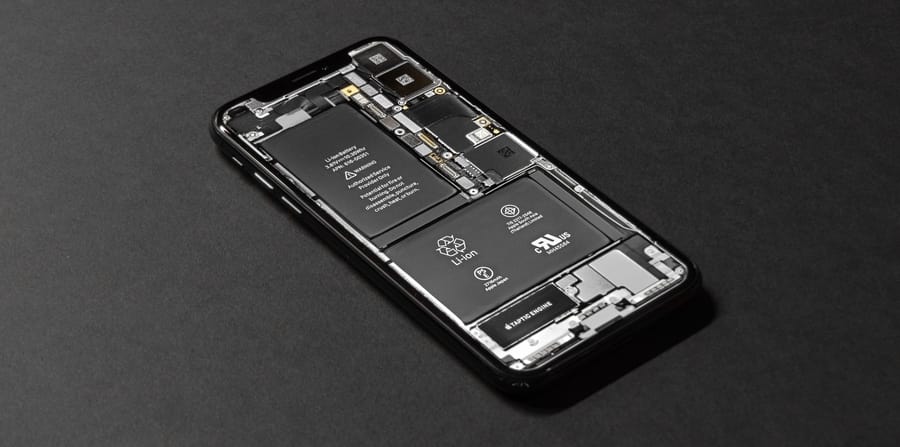
Phone battery life is one of the most important features people consider when they are purchasing a phone, but the technology is largely unchanged, at least in the realm of small gadgets. Instead, phones are getting better at using energy efficiently, and advancements in charging technology make it easy for us to keep our phones powered.
Enter the quick charger. Quick charging systems, also known as fast charging systems, allow power to flow to your battery more quickly than the typical phone charger. They are still USB style chargers, but the voltage of the charging brick is higher.
Even if you use a faster charger than your phone came with, it won’t damage your phone because battery systems in most products, especially modern phones, have hardware and software that regulate the amount of power that flows into the phone.
How Does Fast Charging Work?
A faster charger allows more current to flow to the battery, which increases the rate at which the battery charges, but it isn’t just a massive blast of current that shoots through the battery completely unregulated.
Every phone has a charge controller trip that manages the current that flows to its battery. Cellphone manufacturers try to find a reasonable balance between the speed of the charge and the life of the battery so that the battery both charged rapidly and lasts years, but it is a narrow line to walk. The battery system, including the charge controller trip, ensures that this balance is upheld.
You may notice that the first 50% to 70% of your phone’s battery charges exceptionally fast when you’re using a fast charger, and the last little bit takes much longer. This is because it is easy for energy to be stored in a battery when it gets emptier, but the more full it is, the hard it becomes. This is completely normal.
Will a Quick Charger Work on My Phone?
Quick chargers will charge any iPhone or Android phone, but if your phone is not equipped with a quick charger, it won’t charge your phone any faster than your typical USB charger would.
This is because the charge controller chip is set up to only allow a smaller amount of current to pass to the battery.
Does the Cable Matter When Fast Charging?
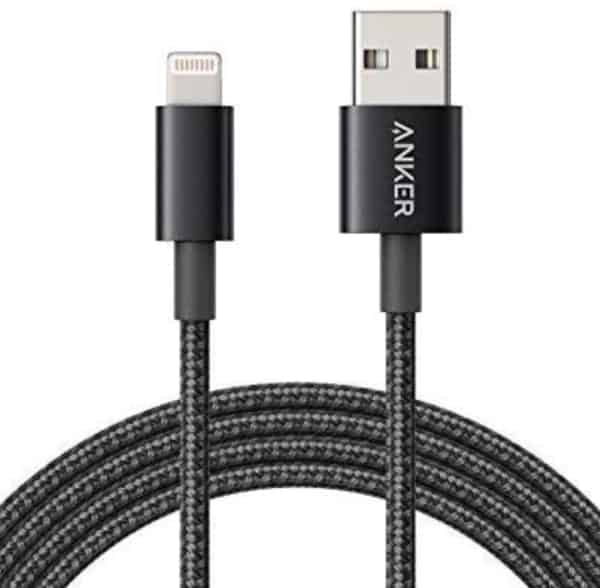
Yes, it does! A low-quality charging cable will not allow as much current to pass to the phone as a high-quality charging cable. If you’re looking for the fastest possible charge, you’re going to want a high-quality, quick charging block and a high-quality cable.
I’ve previously recommended in past articles how the Anker double-braided USB charging cable not only resists fraying, but is also a swift fast charging companion for my iPhone as well, and a great high-quality pick.
Additionally, cheap cables can cause damage to your charging port, rendering it useless.
What If My Phone is Hot While Fast Charging?
When fast charging, a phone may feel warm to the touch. Many people think that this heat may cause the battery to degrade faster, but this heat is factored into the design of the battery system and perfectly safe. The raised temperatures may cause a little more “wear and tear” on the battery, but not so much that you should avoid using a fast charger.
But if your phone feels alarmingly hot to the touch, you should unplug the charger immediately. This is a sign of significant battery damage, which can be caused by several issues.
What If You Leave Your Phone Plugged into Your Quick Charger?
Whether you are charging a battery with a quick charger or a slow charger, it will not damage your battery if you leave your phone on the charger after it has completed charging once in a while.
New phones are designed so that they cannot overcharge, so you don’t need to worry about your phone frying because it is overcharged.
However, keeping your phone at 100% for extended periods of time can cause your battery to degrade more rapidly than if you allow it to discharge regularly (Source). We will get into this more later in the section “What Will Damage Your Phone Battery?”
Fortunately, keeping your phone at 100% all of the time is nearly impossible, so this is an easy problem to remedy.
What about Exploding Phones?
Phone batteries do occasionally explode, but this is not because they’re fast charging. Typically, phone battery explosions are caused by one of the following:
- A manufacturer’s defect
- Heat damage
- Physical damage to the battery
If your battery is bulging, you’ll need to have it handled immediately. Don’t charge it. Don’t use it.
Can Cheap Chargers Damage Batteries?
Most replacement chargers that you might get for your phone are perfectly safe, but there are plenty of knock-offs, poorly manufactured chargers out there, some of which don’t even meet basic safety guidelines. These cheap chargers are hazardous and can damage your phone.
Always buy chargers from reputable sources and that have positive reviews.
Can Quick Car Chargers Damage Batteries?
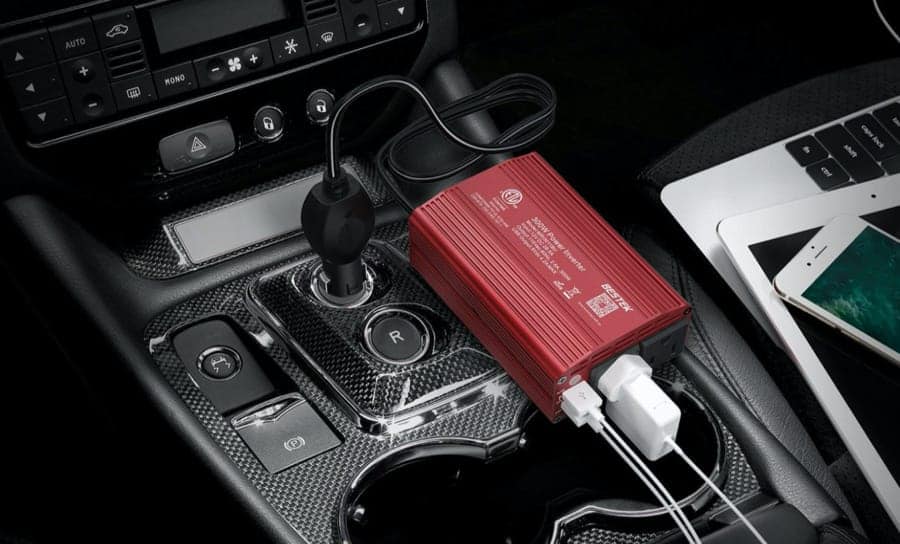
Just like with other chargers, as long as your phone’s battery system and the charger are all functioning properly, a car charger will not damage your battery.
However, the “quick” of a quick car charger is not as reliable as other chargers. Cars do not have the same reliable energy that an outlet in a home would have. Don’t expect any car charger to be lightning fast.
You can improve your car’s ability to charge by using a power inverter, like the Bestek Power Inverter. These have the added benefit of being able to charge other items like laptops and tablets!
Do Wireless Chargers Damage Batteries?
Not at all. Wireless charging technology is new to many, so it is understandable that you might be wondering if it will harm your battery. Wireless chargers will not cause damage to your battery, but your charging habits when using a wireless charger could.
If you continually leave your phone on your wireless charger and it is always at 100%, your battery may degrade faster. One the other hand, if you frequently charge your battery to 100% before it dips below 50%, you could improve the life of your battery.
So it is a give and a take. Pay attention to your habits and make the most of wireless charging.
Wireless chargers also claim to be even better than wired for your phone because there will be less wear and tear on your charging port, which can eventually wear out over time. If your charging port doesn’t work, you can’t charge your phone, rendering it useless. So this is a major advantage.
Will Quick Chargers Damage Other Devices?
Quick chargers will not cause damage to most other devices because properly manufactured devices that accept USB chargers have some method of managing the amount of energy that flows to the battery.
Of course, there will always be products on the market that were not properly manufactured and don’t meet safety standards. These devices might be harmed if used with the improper charger. You should avoid buying these substandard products in the first place because they are, in general, a poor investment.
Alternatives to Quick Chargers
If you decide you want to avoid quick chargers because of the warmth while charging bothers you, there are some other battery powering options to consider, including:
- Slow charging: You could always opt for a slow charge, of course. It will take much longer to charge your battery, though.
- Use spare chargers: Charge in your car. Charge while you’re in class. Charge while working on your computer. Keep spare cables and power bricks in your bag and in your car so that you can top up your charge anywhere you go, effectively eliminating the need for a fast charger.
- Portable chargers: Keep a portable charger handy as a back up to your phone’s battery. It will keep you up and running if your battery drains, and you don’t have time for a slow charge.
- Power savers: Use your phone’s power-saving features to extend the life of your battery. This is especially helpful if you don’t need to use your phone’s advanced features for a period of time.
These might not charge your phone at super-fast speeds, but having access to a charger to top off your charge will allow you to have continuous use of your phone.
What Will Damage Your Phone Battery?
So, if it isn’t the fault of your charger, what is making your battery degrade? Several factors can impact the life of your battery, and this goes for most batteries, not just the one inside your phone. Let’s break them down.
Letting Your Battery Discharge All the Way or Stay Charged All the Way
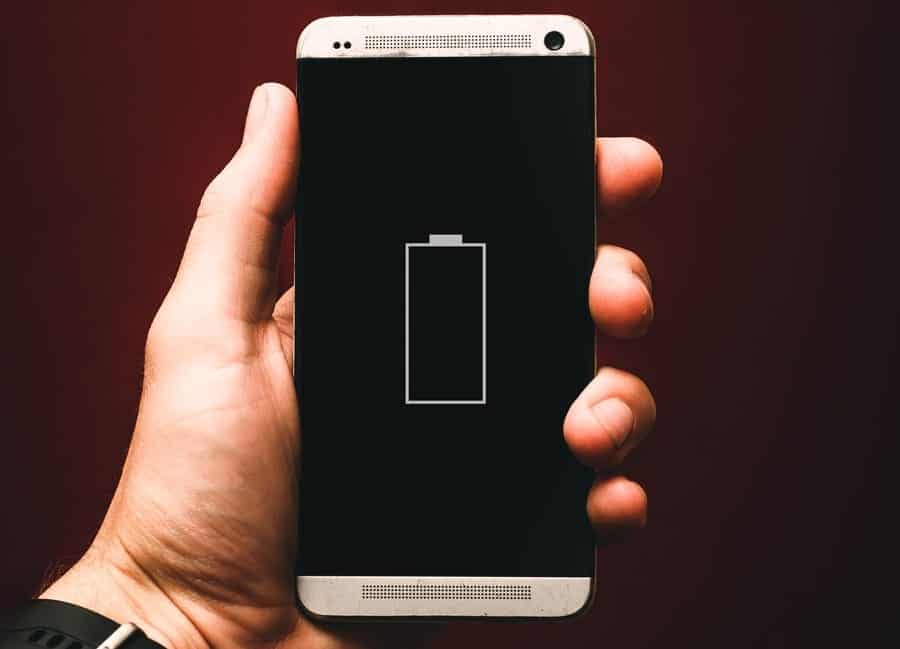
Batteries don’t like extremes. Don’t let your battery discharge all the way down on a regular basis, but don’t let your battery stay at 100% all the time either. When a battery is fully charged or fully discharged, all of its movable lithium ions are on a single layer, which puts a strain on the battery. Even a small amount of strain on a battery will cause the battery to degrade faster than necessary.
The Fix: According to Wired, you should try to keep your phone charged between 20% and 80%, and the most optimal charge is 50% for the best outcomes. You don’t need to go crazy with this, but it will help extend your battery’s life.
Keeping Your Phone in High Temperatures
One of the worst things you can do for your phone battery is to store your phone in a high heat environment, like leaving it in your car in warm weather or in the full sun on your deck.
According to the Center for Disease Control, the heat of a car can rise by 20 degreed Fahrenheit in 10 minutes, and more if you leave it to sit longer. This means that on an 80-degree day, your phone could be in 100-degree temperatures within ten minutes!
High heat will damage your battery over time and reduce its life, and you might not even be able to tell your battery is damaged until it stops working completely, or, at worst, becomes so damaged that it explodes.
The Fix: Don’t leave your phone in direct sun or in your car, especially if it is charging, which can already increase the temperature of your battery. Instead, carry it with you and keep it in a bag or your pocket. This will also help prevent it from getting stolen while unattended.
Using Cheap, Generic Chargers
All cheap, generic, low-quality electronics, including phone chargers and batteries, should be avoided at all costs. A quick scroll through the reviews on these products reveals how unsafe they are. You’ll find stories of fires, explosions, and electric shocks. It doesn’t paint a pretty picture.
It might cost a little more, but a brand name charger will be more reliable, last longer, and be safer than these shoddy products.
The Fix: Purchase all phone charging equipment from a trusted source. Beware of “name brand” products on discount websites that are knock offs.
Damage to Your Phone
Any physical damage to the phone can also cause your battery to become damaged. If the battery’s hardware becomes damaged. Twisting and bending on the phone can cause problems, but even a bad fall can knock something out of place inside the phone.
Water damage can also cause problems for your battery, usually in the form of corrosion forming around the sensitive parts of your phone. Thankfully many phones being made nowadays are waterproof or water-resistant.
The Fix: Keep your phone in a shock-absorbent case and be careful with your phone in areas where it may come in contact with water, including in the bathroom, kitchen, or while swimming.
Leaving Your Phone on the Charger Overnight
Like we mentioned above, a phone shouldn’t stay at 100% for too long because it puts more wear and tear on the phone. Don’t leave your phone on its charger for long periods of time, like while you sleep.
The Fix: Charge your phone during times when you can monitor its progress. Unplug as soon as you notice it is at 100%. If charging your phone at night is important to you, you could use a timer to turn off your phone’s charge in the middle of the night.
How Long Do Phone Batteries Last?
Phone batteries will typically outlast any manufacturer’s warranty that is on the phone by a year or two. Generally, phone batteries last between 2 and 3 years. This might not seem like a long time, but most people are ready for an upgrade to the latest technology by their third year with a phone. Think about the last time you got the itch for a new phone. It probably wasn’t that long after purchasing your current one.
So, if your phone battery is in decline, before you start pointing fingers at your phone charger, consider how long you’ve had the phone. Perhaps the battery has just reached the end of its useful life.
Can You Replace a Damaged Phone Battery?
Some phones have easily replaceable batteries. Once you have the right battery, you just have to remove the old and install the new—no big deal.
But other phones, like some of the more high-end models, require a special skill set to swap out a battery, like using correct tools for opening the phone and removing heavy-duty adhesives.
So, if your battery is damaged, it might not be as easy as swapping out the battery. You might need to bring your phone to a professional. If you want the option of changing your battery easily, you’ll need to pick out a phone that allows it.
Quick Chargers Don’t Hurt Phones
You don’t need to worry about your quick charger causing damage to your phone, and if you follow the guidelines outlined above, your phone’s battery should exceed its projected lifespan, barring any catastrophes like a major drop. Keep in mind that batteries don’t last forever. No matter how well you take care of your battery, within 2-3 years, it will likely need to be changed, or your phone will need to be replaced.
Recommended Products that Helped Me Research This Article
- Anker Premium Double-Braided Nylon Charging Cable (on Amazon) – Living in an area where the weather goes hot and cold throughout the year, it drives me nuts when a charging cable dies, frays, or turns stiff in my car when I’m trying to connect it to my infotainment display. Thankfully, I’m happy to report that this is my go-to favorite charging cable that I bring with me everywhere. It doesn’t deform with the weather, provides a great connection 100% of the time with my devices, and charges them quickly without any hesitation.
- Bestek 300W Power Inverter DC 12V to 110V AC Car Inverter with Dual USB (on Amazon) – Great for vehicles that don’t have AC plugs or USB ports already built-in, the Bestek power inverter can easily and rapidly charge multiple devices at the same time using solely the power from your car’s cigarette lighter. Pair this inverter with the Anker cable to create a seamless charging experience with your tablets, laptops, and phones while on-the-go.
